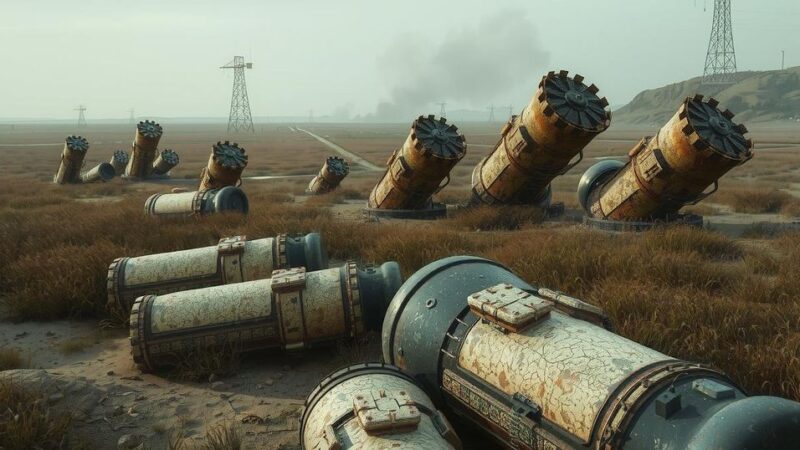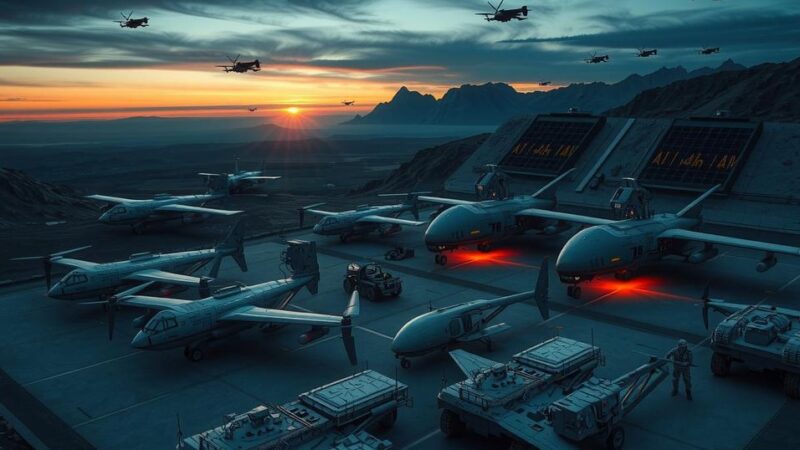Sudan’s military has announced its control over the presidential palace in Khartoum, marking a notable development in the ongoing conflict with the Rapid Support Forces. This advance occurs amidst a severe humanitarian crisis, with over 28,000 casualties reported. The palace’s loss signifies a strategic defeat for the RSF while highlighting the complexities and ongoing violence in Sudan.
On Friday, the Sudanese military announced its full control over the presidential palace in Khartoum, previously held by the paramilitary Rapid Support Forces (RSF). This significant development marks a pivotal moment in a conflict that has persisted for nearly two years and threatens to further destabilize the nation. Videos circulating on social media depicted military personnel proclaiming the date as the 21st day of Ramadan, confirming their presence within the palace grounds.
The Republican Palace, a vital governmental site along the Nile, showed signs of significant damage, with military personnel observed navigating amidst broken tiles. As they celebrated their advance, soldiers wielding rifles and rocket-propelled grenades chanted religious affirmations. This victory further consolidates the military’s gains under the leadership of Army Chief General Abdel-Fattah Burhan.
The RSF has been effectively ousted from Khartoum since the onset of the conflict in April 2023. However, the RSF has yet to comment on the loss, continuing to maintain control over other territories in Sudan. The conflict, characterized as one of the world’s most severe humanitarian crises, has resulted in over 28,000 casualties and millions of displaced individuals, exacerbating famine conditions in certain areas.
Historically, the Republican Palace was a symbol of governance throughout Sudan’s colonial era and witnessed the emergence of the nation’s independence in 1956. The military has persistently targeted the palace, which has also served as the operational headquarters for Sudanese leadership.
Sudan has faced instability since popular uprisings led to the ousting of long-time autocrat Omar al-Bashir in 2019. A transition toward democracy was disrupted following a military coup by Burhan and his RSF counterpart, General Mohammed Hamdan Dagalo, in 2021. The ensuing conflict between the military and the RSF erupted in 2023, escalating civilian harm and contributing to the humanitarian crisis.
Charges against al-Bashir regarding past genocidal actions in Darfur now resonate within the ongoing conflict, as accusations of systemic ethnic violence surface against the RSF and allied groups. The international community, including rights organizations and the United Nations, have raised alarms over human rights violations amid these hostilities. The RSF and the military both deny the allegations of abuses, despite intense scrutiny from global observers.
The recent seizure of the Republican Palace by Sudan’s military underscores a crucial development in the ongoing conflict with the Rapid Support Forces, marking a strategic advance amidst significant humanitarian challenges. With grave casualties reported and vast displacement of individuals, the complexities of the conflict continue to unravel, demanding attention from both domestic and international stakeholders. The situation remains precarious, with rising tensions indicating that resolution may not be imminent despite military gains.
Original Source: www.france24.com






